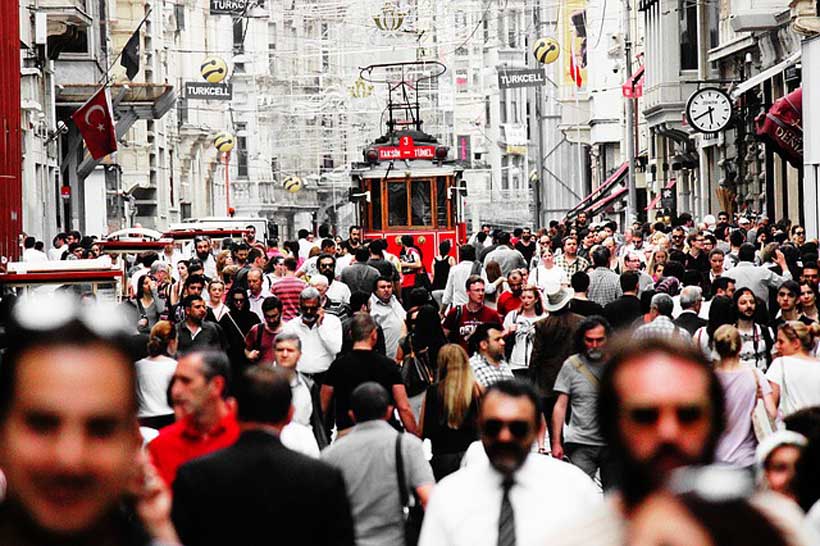The concept of politics has its roots in the name of Aristotle’s classic work, Politiká, which introduced the Greek term politiká (meaning ‘affairs of the cities’).
The politicians from time to time are seen as “power-seeking hypocrites”. This view reveals that politics sometimes hosts unprincipled activities. Such an image of politics is traced back to the writings of Niccolò Machiavelli, who in the Prince (1532) developed a very realistic account of politics that drew attention to politicians’ manipulation and cruel behaviors. Centuries later, the perception of politics has not changed very much.
German political theorist Hannah Arendt in her book The Human Condition published in 1958 argued that politics is the most significant form of human activity and it gives meaning to life.
As Arendt argued decades ago, politics is at the heart of human life. As a matter of fact, politics can be seen as an all-encompassing and even a transcendental phenomenon. It affects society, economy, foreign relations, media sector, education and health system and also tourism etc. This article attempts to shed light on the concept of “clean politics” in the context of Turkey within the framework of recent political developments.
There are not many academic studies on issue of “clean politics”. One of the articles about this issue was published in 2009 by Darren C. Zook. Zook in his article titled “The Curious Case of Finland’s Clean Politics” argued that corruption is a pervasive problem that affects every country to some degree. Based on Zook’s statement, it is obvious that Turkey is not an exception for sure.
The relationship among all the actors in Turkey shapes the quality of democracy and also shapes the corruption level. It is known that not only the political actors (the elected actors) and the state actors (the appointed actors) but also the actors in the realm of media, economy and academia all affect Turkish politics to some degree.
Nowadays, I think not only the political opposition but also some groups in the government have begun to discuss the issue of “clean politics” after Sedat Peker’s videos. Sedat Peker is defined as a “well-known convicted mafia leader” In the early days of May (on May 2) Turkey watched the first video of Sedat Peker. Since May 2, Peker has uploaded six videos on his Youtube channel and the videos have been watched by around fifteen millions of people so far (until today May 22 while this piece is being written.) Peker made serious claims about the Minister of Internal Affairs Süleyman Soylu and also about some journalists and politicians. According to New York Times, last week, as Israel’s bombing of Gaza filled the television screens, millions of Turks hooked onto YouTube to listen to the extraordinary allegations of Sedat Peker.
Yesterday, journalist Musab Turan from state-run news agency Anatolian Agency asked two ministers about Peker’s claims about the Minister of Internal Affairs Süleyman Soylu. Turan asked the Minister of Industry and Technology Mustafa Varank and the Minister of Agriculture and Forestry Bekir Pakdemirli the question of “Is the name of the AK Party smaller than Süleyman Soylu, who is now known with suspicions?” Later Turan was fired by Anatolian Agency. AA made the following statement: “The work contract of Musab Turan who asked questions in a press conference in a way that does not comply with the journalism criteria and the media profession principles and ethics, and who carried out this political propaganda activity by making a live broadcast on his social media account has been dissolved.”
In 2016, TJ Brown in his article titled “The Myth of Clean Politics” wrote the following:
“The game of politics is about favors and special interests, money exchanging hands, deals being made, sometimes under the table and other times in plain sight. Powerful people have always had an advantage in influencing the process. But when it comes to politics, people claim to not want competition; rather they demand fairness, equality, and virtue.”
According to Brown, politics is prone to corruption. In his article, he argued that “If you want politics to be less corrupt, the solution isn’t to shrink corruption. The solution is to shrink the state.” In this regard,the Greek leader George Papandreou’s saying about politics is important. Papandreou said the following:
“ There is this concept of politics as a dirty game. It’s a difficult game, but it doesn’t have to be dirty. I think this is what we need to bring to politics. I think politics around the world has very often been captured by big interests – ‘lobbies’ they call them in the States.”
I think after making reference to Greek leader George Papandreou it is quite important to pose this question “What are the big interests in Turkey, who hold these interests?”


